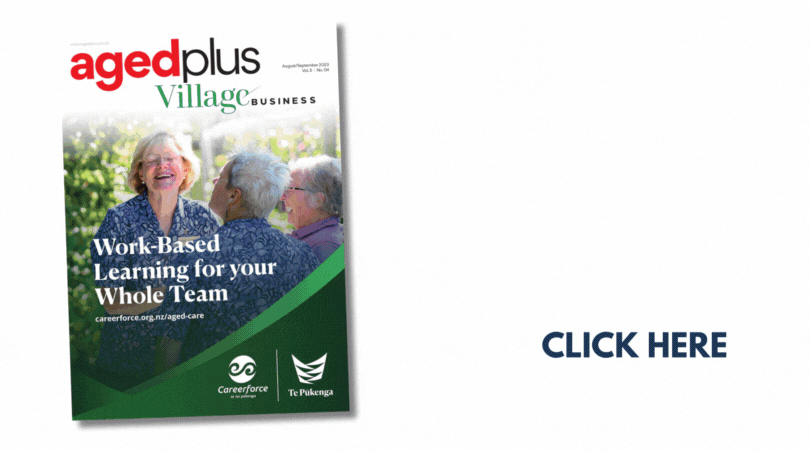People management platform Employment Hero has today launched the findings of a new national report entitled ‘COVID-19, vaccinations and the workplace’, revealing a notable difference in sentiment around vaccination between male and female employees across New Zealand.
Of the 500 employees surveyed in New Zealand, 73 percent of men report they are likely to get vaccinated now the COVID-19 vaccine is available compared to 64 percent of women, while 17 percent of men are unsure if they are likely to get vaccinated compared to 23 percent of women.
In addition, Employment Hero surveyed 500 employees in the United Kingdom and Singapore, and found that female employees in these countries are also more unsure than their male counterparts about whether they are likely to get vaccinated. Of the three markets, Singapore has the most women unsure if they are likely to get vaccinated (25 percent), compared to 12 percent in the UK.
These findings, which point to greater uncertainty around the vaccine among female cohorts across New Zealand, the UK and Singapore, is at odds with global data that suggests women have been more likely to comply with public health pandemic regulations and have taken a more serious approach to the crisis.
Interestingly, the highest reported levels of men unsure if they are likely to get vaccinated were found in New Zealand. This is compared to seven percent of male respondents in the UK and 13 percent of male respondents in Singapore.
Employment Hero’s New Zealand report also reveals a majority (68 percent) of employees want to be vaccinated, while the number of employees who do not want to be vaccinated (12 percent) is markedly less than the number of employees who are unsure if they want to be vaccinated (21 percent). This trend of greater uncertainty surrounding the vaccine is also seen across the UK, Singapore, as well as the 500 employees Employment Hero surveyed in Malaysia.
New Zealand has the highest number of employees who do not want to be vaccinated, compared to the UK (six percent), Singapore (six percent), and Malaysia (four percent), and the highest number of employees who are unsure if they want to be vaccinated, compared to the UK (10 percent), Singapore (18 percent) and Malaysia (14 percent). New Zealand employees are also less likely to want to be vaccinated, compared to the UK (84 percent), Singapore (71 percent) and Malaysia (81 percent).
“Interestingly, male employees seem to be less hesitant to get vaccinated than their female counterparts, which contradicts other reports that have found women to be more compliant with public health directives during the pandemic. It’s likely that these sentiments are linked to the fact that pregnant women were not included in clinical trials of the available COVID-19 vaccines, along with a historically substandard level of research in the area of women’s health,”
“While the findings of the report suggest some uncertainty around COVID-19 vaccinations, it’s important to recognise that uncertainty does not necessarily mean complete resistance. In instances where people are unsure about getting vaccinated, the likely cause is a lack of education or an abundance of misinformation – the remedy is understanding and sensitivity, particularly from employers,” Alex Hattingh, ANZ Chief People Officer at Employment Hero said.
Of the additional 500 employers surveyed in New Zealand for the report, 35 percent asserted their intent to mandate vaccinations in their workplace. When asked how they felt about mandated employee vaccinations, New Zealand employees who do not want to be vaccinated offered a range of responses – including they’d need to discuss options with their employer and make an informed decision; they would not like to be forced but if they had to, they would; and, they would want to hold their employer responsible for any adverse effects now or in the future.
“As the rollout of the COVID-19 vaccine begins to ramp up, employers in New Zealand will be faced with the challenge of balancing their OH&S obligations to their entire group of staff and respecting the autonomy and choice of individual employees,”
“It’s vital that sensitivity and consideration are practised when dealing with these issues and the key is to educate employees who are reluctant about getting vaccinated using verified sources of information, demonstrating a great deal of understanding and having the tenacity to lead by example, which will encourage staff to follow suit,” said Hattingh.
Interestingly, regarding changes in working location over the next six months, the report findings indicate New Zealand employers might be thinking more flexibly than their employees. A majority of employers said that they will continue to allow their teams to work remotely or flexibly (25 percent) or expect to allow their teams to work more flexibly (23 percent), while only 19 percent of employees believe this will be the reality. Meanwhile, 13 percent of employers said they will return their teams to the office as normal over the next six months, while a greater 23 percent of employees think they will have to return to their office.
“The demand for hybrid models of working is clear and will continue to shape the way we work in the future. The pandemic has opened our eyes to the possibility of alternative ways of work and the benefits that come with flexibility, for both employees and employers alike,”
“We may not remain fully remote as we navigate through the peak of the pandemic, but there’s no doubt that hybrid or remote-first environments will underpin the way we work from here and into the future,” said Hattingh.






